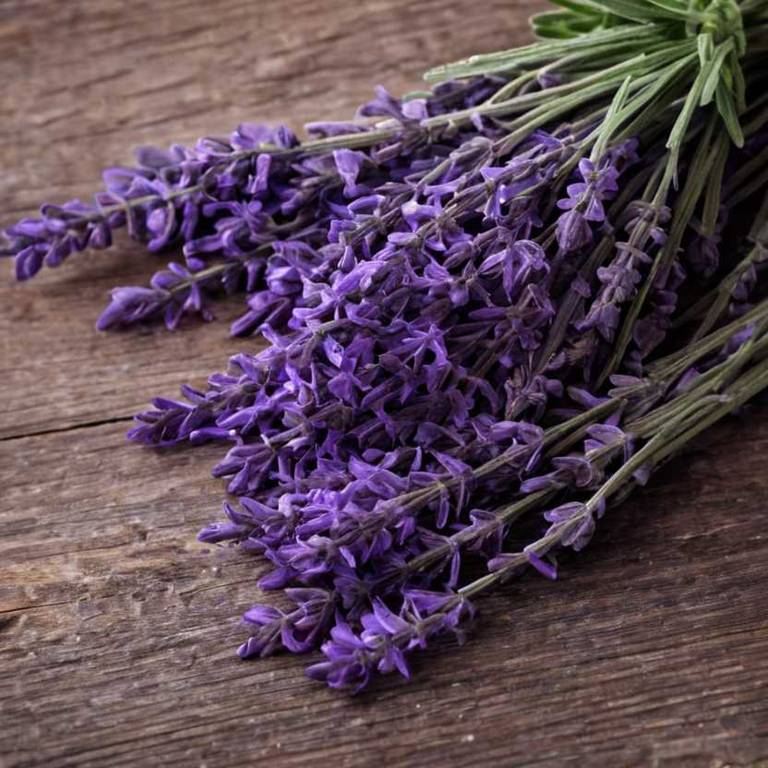By Leen Randell
Updated: Jul 05, 2024
What Are The Medicinal Properties Of Lavandula Angustifolia (English Lavender)?

Lavandula angustifolia, also known as English lavender, has health benefits such as reducing anxiety and stress, promoting relaxation, and improving sleep quality.
The herb contains linalool and linalyl acetate, which are responsible for its medicinal properties. Medicinal preparations of English lavender include essential oils, teas, and tinctures, which can be used topically or internally. Side effects of English lavender may include drowsiness, headaches, and allergic reactions.
Precautions should be taken when using English lavender, especially in pregnant or breastfeeding women, as it may interact with certain medications.
This article explains the health benefits, active constituents, medicinal preparations, possible side effects, and precautions related to Lavandula angustifolia.
- What are the health benefits of Lavandula angustifolia?
- What are the active constituents of Lavandula angustifolia?
- What are the medicinal preparations of Lavandula angustifolia?
- What are the possible side effect of using Lavandula angustifolia improperly?
- What precautions to take when using Lavandula angustifolia medicinally?
What are the health benefits of Lavandula angustifolia?
Lavandula angustifolia, also known as english lavender, has health benefits such as reducing anxiety and insomnia through its calming effects, easing pain and inflammation, and improving sleep quality.
Its antiseptic and antimicrobial properties also make it effective in wound healing and skin conditions like acne and eczema.
Additionally, its aromatic oil can help soothe digestive issues and promote relaxation.
Here's a detailed article about the 10 health benefits of Lavandula angustifolia.
What are the active constituents of Lavandula angustifolia?
Lavandula angustifolia, also known as English lavender, has active constituents such as linalool, linalyl acetate, and camphor, which possess calming and analgesic properties.
The herb is valued for its sedative, antispasmodic, and anti-inflammatory effects, making it a popular choice for treating anxiety, insomnia, and minor skin irritations.
Its essential oil is also used in aromatherapy to promote relaxation and reduce stress.
Here's a detailed article about the 10 active constituents of Lavandula angustifolia.
What are the medicinal preparations of Lavandula angustifolia?
Lavandula angustifolia, also known as English lavender, has medicinal preparations such as essential oils, tinctures, and infusions that are used to alleviate anxiety, insomnia, and restlessness.
These preparations are also used to soothe minor burns, cuts, and skin irritations. Additionally, lavender oil is used in aromatherapy to reduce stress and promote relaxation.
The oil is also used as an antiseptic to prevent infection and promote wound healing.
Here's a detailed article about the 10 medicinal preparations of Lavandula angustifolia.
What are the possible side effect of using Lavandula angustifolia improperly?
Improper use of Lavandula angustifolia, also known as English lavender, increases the chances of experiencing side effects such as digestive issues, nausea, and headaches in some individuals.
High doses can also cause dizziness, fatigue, and allergic reactions in rare cases.
People with allergies or sensitive skin should be cautious when using lavender essential oil or products, and it's always recommended to consult a healthcare professional before using it therapeutically.
Here's a detailed article about the 10 most common side effects of Lavandula angustifolia.
What precautions to take when using Lavandula angustifolia medicinally?
Before using Lavandula angustifolia, also known as english lavender, for medicinal purposes, you must take precautions such as consulting a healthcare professional, especially if pregnant or breastfeeding, as it may interact with certain medications or exacerbate certain health conditions.
Additionally, essential oil should be used diluted with a carrier oil, as undiluted application can cause skin irritation or other adverse effects.
Proper dosing and usage guidelines should also be followed.
Here's a detailed article about 10 precautions to take when using Lavandula angustifolia.